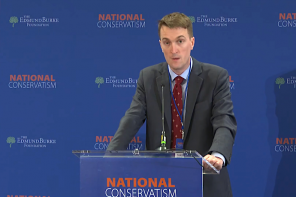Capital in the Twenty-First Century made Thomas Piketty that rarest kind of celebrity: the academic kind. The French economist’s hefty tome helped propel the issue of income inequality to the forefront of our political debates. It should come as no surprise that he writes, at Le Monde, that inequality helps to explain the rise of ISIS, too. It’s been called “the most controversial theory behind the rise of ISIS,” though it’s not a ridiculous one.
That honor belongs to Marco Rubio, who should get honored for most ridiculous theory: ISIS attacks us “because we let women drive, because we let girls go to school.”
Yeah. “Let.”
Clearly not all explanations are made equal.
Abandon all hope
Violence is not the exception, but often the rule, in human affairs. But extremes of violence are unusual, possibly because any nation that suffers total war is unlikely to want to go to war for a good long gap of time. We have to forget how terrible war is before deciding to try it again. Hence the gap between our intervention in Vietnam and nation-building in Iraq.
But what about the places where total war becomes the norm?
In the first half of the twentieth century, countries like Russia and Germany, and the lands in between them, initiated or suffered extremes of war that few countries have thankfully ever experienced, or could conceive of.
Iraq might be able to. Just review the last one hundred years of Mesopotamian history.
France and Britain had long desired to control the Ottoman Empire’s Levantine territories, Zionists aimed to colonize Palestine, and the Russians wanted the Bosphorus. World War I gave them their chance. But let’s focus on Iraq.
Largely Indian forces, mostly Sikhs, Muslims and Hindus under British command, seized Baghdad from the Ottomans by the end of the First World War. The modern nation of Iraq was born when the British fused three former Ottoman provinces, with major demographic differences between them, and gifted them to a King who ruled with their oversight.
That arrangement was not to last, but nor was any lesson learned.
The British invaded Iraq a second time, in the early days of the Second World War, to place a more pliant figure on the throne; Iraq’s post-war history wasn’t that much better. Eventually Saddam Hussein came to power, consolidating his rule through the strategic application of horrific torture, sexual violence and widespread surveillance, intimidation and humiliation. Iraq went to war with Iran for most of the 1980s (which conflict saw the use of chemical weapons), invaded and was subsequently driven from Kuwait by an American-led military coalition, endured two major failed uprisings, and suffered almost a dozen years of international sanctions that killed tens of thousands of innocent civilians.
In 2003, Iraq was invaded a fourth time—the fourth Western-led war against a country that was itself created by Western colonialism—and the results have been disastrous; we had no plan of action beyond booting out the dictator we once backed. More war broke out, involving uprisings, insurgencies, ethnic cleansings and sectarian jihadism in its ugliest incarnation yet. America’s power in the world has dramatically declined, and some conservative commentators seem to believe the way to recover American prestige is by repeating the wars that destroyed it.
Apparently some people seem to think the fifth time will be the charm.
Neverending war
Among the underreported causes of ISIS is the experience (or a person’s identification with, or feeling of responsibility towards, the experience) of profoundly asymmetric warfare. But Iraq has been at war now for thirty-five years; the last time Iraq was not at war, Jimmy Carter was President, and even then, it was suffering a dictatorship. Even if Iraqis, or Syrians, decided among themselves to prefer peace, this could not guarantee them security from world powers. After all, Iraq did nothing to America and yet was invaded in 2003. At the moment, four separate nuclear powers are launching airstrikes against various Syrian targets, and the British may soon join in, bringing the number to five. Five.
In recent months, America has been reintroducing ground troops into Iraq, which means we are opening the door to a fifth major war between Western powers and Iraq. Five. In one century. What would you imagine would come out of a place enduring so much war, famine, hardship and routinized brutality? Would you imagine a measured, mannered movement of humanitarian inclinations, or a reproduction and extension of violence in new directions?
This is not to say that people do not have agency, that terrorism is not abhorrent, that such enormities can be excused. But our choices reflect the options before us. In a landscape shattered by war, tens of thousands have fought, between themselves, every major power the world now knows, and will become ever more comfortable and ruthless in their violence, because this is all they have known. Is it surprising that a country which has suffered asymmetric war for a century descends into apocalyptic violence, or that the experience of endless war results in a movement dedicated to endless war?





